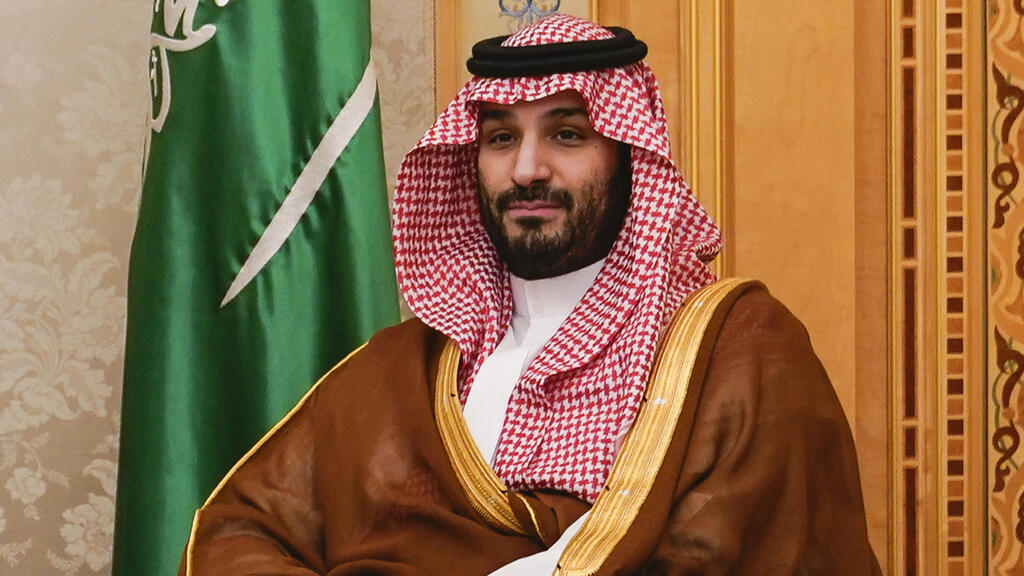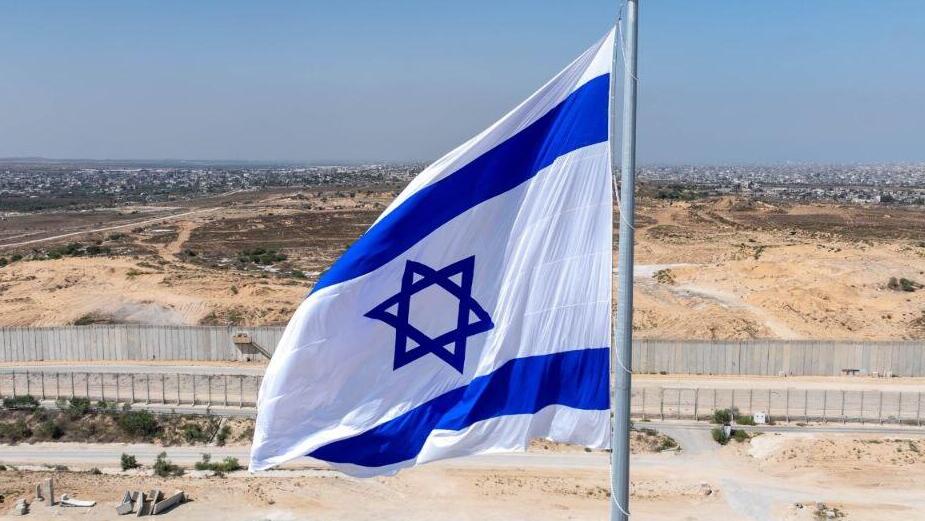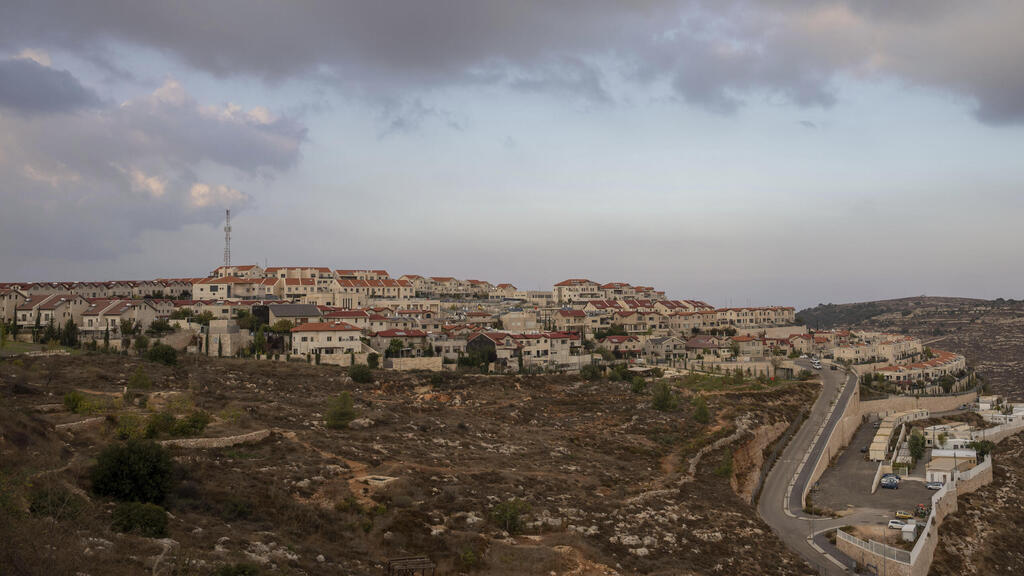As Israel’s war in Gaza appears to be reaching an end, Israeli thinkers are hard at work developing a strategy to meet the new regional dynamics that have resulted from the war.
Marking his inauguration the day after the first release of Israeli hostages as part of the current cease-fire-hostage deal, the Coalition for Regional Security sent U.S. President Donald Trump its Abraham Shield Plan. This comprehensive strategy outlines a bold roadmap to stabilize the Middle East, neutralize regional threats, and secure lasting peace and prosperity for Israel and the region.
5 View gallery


Prime Minister Benjamin Netanyahu, U.S. President Donald Trump
(Photo: Jim Watson and Ryan M. Kelly / AFP)
The plan seeks to capitalize on the momentum generated by Israel’s military achievements and the unfolding hostage and cease-fire deal to reshape the region’s security framework, foster economic integration and establish a durable alliance between Israel and moderate Arab states.
According to the coalition, this initiative is pivotal to uniting Israel with moderate Arab nations, forging an “iron shield” against Iran and its proxies, and charting a new regional order that prioritizes stability and collaboration.
The Coalition for Regional Security has urged bold U.S. leadership to ensure the success of the Abraham Shield Plan, highlighting the stakes of normalizing relations between Israel and Saudi Arabia while advancing a separation framework with the Palestinians. Brig. Gen. (res.) Udi Dekel, a founding partner of the coalition, described the plan as an opportunity to transform the Middle East. “President Trump’s leadership is essential to realizing this vision and seizing this historic moment,” Dekel said.
Polling data underscores strong public backing in Israel, with 72.5% of respondents supporting a U.S.-led initiative under Trump’s leadership to achieve hostage returns, Saudi normalization, and the formation of a regional coalition to counter Iran.
Coalition’s vision for postwar stability
The Coalition for Regional Security, established one year into the war, aims to chart a new path in the Middle East, rooted in the belief that Israel’s military successes must be translated into a comprehensive strategy for the “day after” the conflict.
The initiative, formed by five prominent Israeli figures – Dekel, Lianne Pollak-David, Koby Huberman, Moty Cristal, and Attila Somfalvi – focuses primarily on Israeli security, regional order and economic opportunities, with the goal of ensuring stability and long-term peace for the region.
“Our goal is to translate the unbelievable military achievements that Israel was able to obtain throughout this war into a future that provides a new regional order,” according to Pollak-David, one of the founders of the coalition and a former adviser in Israel’s National Security Council.
Broad support for the coalition
The coalition has already gained significant support from Israeli society, with over 100 senior figures backing its efforts. Pollak-David said that notable backers include former ministers, security experts, businesspeople, tech leaders, and diplomats.
According to its leaders, the coalition’s ultimate goal is to create a stable environment that allows for lasting peace. “This war is over, Gaza is in ruins, and Hamas as a fighting force is threadbare. It’s vital to have a plan for the ‘day after’ that brings peace in this area of the globe,” said Josh Hantman, former adviser to Israel’s Defense Ministry and a partner in the coalition.
Normalization and separation plans
As part of its plan to achieve security and stability, the coalition proposes pursuing normalization with Saudi Arabia and carrying out “a gradual, responsible, secure path of separation from the Palestinians.” Pollak-David cited research showing that more than three-quarters of Israelis support peace with Saudi Arabia and around two-thirds support separation from the Palestinians.
One of the plan’s conditions for separation from the Palestinians is that Hamas will not be represented in Palestinian political bodies.
Pollak-David described Hamas in Gaza as “almost completely eradicated,” but according to Hantman, there’s no guarantee that the group won’t see a resurgence. “If we leave a vacuum, Hamas will simply return,” he said.
Stabilizing Gaza through regional cooperation
The Coalition for Regional Security plan proposes establishing a technocratic government in Gaza, aimed at providing essential services and overseeing reconstruction efforts. “This government would be tasked with ensuring the smooth rebuilding of Gaza and the management of humanitarian aid, all while maintaining stability in the region,” Pollak-David explained.
She outlined the role that Arab states could play in stabilizing Gaza. “Egypt and Jordan will be useful to monitor security inside the strip through a police and security system,” she said, explaining that Israel’s military won’t remain in Gaza under their plan.
Pollak-David also noted that Saudi Arabia and the United Arab Emirates have both successfully led internal deradicalization efforts that could be relevant for Gaza’s future. The coalition hopes to harness those countries’ successes in rebuilding Gaza.
Role of Arab nations in regional stability
Danny Ayalon, former ambassador of Israel to the U.S. and a partner in the coalition, also underscored the importance of Arab nations in the region’s future. “Moderate countries such as the Emirates, Saudi Arabia and Bahrain must be involved in stabilizing the Palestinian situation and contributing to the regional economy,” he said.
Economic opportunities: The Cotton Road initiative
Beyond security and governance, the coalition also seeks to establish economic cooperation between Israel and its Arab neighbors, which could further solidify regional stability. Cooperation, while largely behind the scenes, has already begun in various sectors, including technology and infrastructure investments.
Ayalon described the vision of an economic corridor between Asia and Europe via Israel. This “Cotton Road” would provide a strategic alternative to China’s Belt and Road Initiative, enhancing trade and economic ties between the Gulf, Israel, the Palestinian territories, Europe, and the US (where goods would be shipped after arriving in Europe).
For Israel, potential economic opportunities include sharing innovation and technology with other countries in the region. “Israeli advancements in water tech, food tech, and agri-tech can enable immense cooperation with Arab partners in the region, especially in the Gulf,” Ayalon said.
Ayalon’s own company, Silver Road Capital, is prepared to invest billions in Palestinian high-tech startups and other industries that could foster economic growth and regional partnerships. “We are ready to introduce and push economic opportunities in the region, starting from the Palestinian territories, once stability is reached,” he explained.
He also highlighted the potential for joint tourism initiatives, particularly in regions of Israel and the Palestinian territories rich in biblical and archaeological significance.
Addressing settlements and long-term peace
Settlements remain a sensitive issue, one that the coalition seeks to address pragmatically. Pollak-David acknowledged the challenges posed by Israeli settlements in the West Bank, particularly considering the broader regional context. “The violence of extremist settlers has to end right now,” she said.
Get the Ynetnews app on your smartphone: Google Play: https://bit.ly/4eJ37pE | Apple App Store: https://bit.ly/3ZL7iNv
She said that a practical division of settlement blocks and illegal settlements must be discussed in future negotiations.
Hantman described the issue of settlements as tied to final-status negotiations, which aren’t emphasized in the coalition’s plan. “The coalition’s focus is on ensuring security and avoiding steps that undermine the overall stability,” he explained.
By focusing on Israeli security, regional collaboration, and economic integration, the Coalition for Regional Security has set out to build a new regional order—one that could potentially reshape the region’s geopolitical landscape. Only time will tell whether the initiative will succeed.





